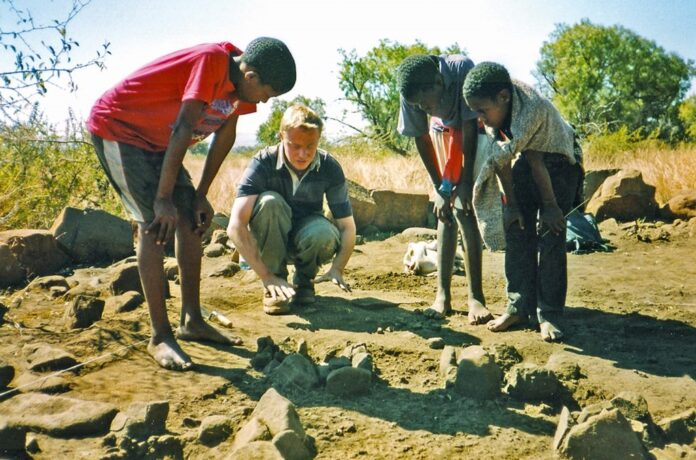A recent study Omega, et al., (2024) titled “Validity Source Comparison of Mental Health Continuum-Short Form (MHC-SF) in Setswana-South Africa and Indonesia” published in the 4th International Conference on Social Science, Humanity and Public Health shows that both the Setswana-South Africa and Indonesian versions of the Mental Health Continuum-Short Form (MHC-SF) have good content validity and represent three factors well.
The validity of the Mental Health Continuum-Short Form (MHC-SF) in various cultural contexts, particularly in Setswana-South Africa and Indonesia, has been examined in a recent study. This investigation delves into multiple facets of validity based on recommendations from prior research. In terms of content validity, both the Setswana and Indonesian versions of the MHC-SF demonstrate strength by encompassing three key dimensions of well-being: Emotional, Social, and Psychological. This indicates that the content of the assessment adequately represents the construct it intends to measure.
“
the MHC-SF exhibits good validity in Setswana-South Africa and Indonesia, albeit requiring additional validation in Indonesia. – Omega, et al., 2024
Internal structure analysis through Confirmatory Factor Analysis (CFA) reveals a favorable fit for the three-factor structure in both versions. This suggests that the items within each dimension cohere well, supporting the integrity of the instrument’s internal structure. Criterion validity, however, presents a divergence between the two versions. While the Setswana iteration shows good convergent validity, indicating its alignment with other established measures of mental health, the Indonesian version lacks thorough criterion validity tests. This underscores the importance of further validation efforts, particularly in Indonesia, to ensure the accuracy of measuring positive mental health. In terms of the response process, the Setswana version generally demonstrates sound methodology. However, there is a notable consideration regarding illiterate participants who may rely on assistants for completion, highlighting the necessity for careful evaluation in such cases. Regarding the consequences of testing, both versions prove effective in measuring positive mental health. Nonetheless, the study emphasizes the need for additional validation, particularly for the Indonesian MHC-SF, to enhance its reliability and accuracy.
How the Study was Conducted
The study employed a methodological approach centered around a comprehensive literature review to investigate the validity of the Mental Health Continuum-Short Form (MHC-SF) in Setswana and Indonesian contexts. This review was conducted utilizing databases such as psycnet.apa.org, Google Scholar, and Elsevier, employing specific search phrases to identify relevant papers. The study deemed to offer the most comprehensive validation were selected for comparison and analysis. The evaluation of the MHC-SF was structured around five key sources of valid evidence: content, internal structure, relation to other variables, response process, and consequences of testing. Each of these sources was scrutinized to assess the robustness and appropriateness of the MHC-SF in measuring mental health in Setswana-speaking and Indonesian populations.
What the Authors Found
The authors found that both the Setswana-South Africa and Indonesian versions of the Mental Health Continuum-Short Form (MHC-SF) have good content validity and represent three factors well. However, the Setswana version has good convergent validity, while the Indonesian version lacks criterion validity, suggesting it needs further validation. Both versions showed a good response process, but the Setswana version had some concerns regarding illiterate participants’ independence in answering questionnaires. The consequences of testing indicated that both scales can effectively measure positive mental health.
Why is this Important
Cross-Cultural Validity: By comparing the MHC-SF in Setswana-South Africa and Indonesia, the study sheds light on the scale’s applicability across different cultural contexts. Understanding how well the instrument performs in diverse populations is crucial for its global use.
Mental Health Measurement: The MHC-SF assesses positive mental health, which is essential for a holistic understanding of well-being. Validating this scale ensures accurate measurement and helps identify individuals who may need support.
Policy and Interventions: Accurate mental health assessment informs policy decisions and intervention strategies. If the MHC-SF is valid, it can guide resource allocation and targeted interventions to promote positive mental health.
Research and Clinical Practice: Researchers and clinicians rely on valid instruments to study mental health trends and provide evidence-based care. Validating the MHC-SF enhances its utility in both research and clinical settings.
What the Authors Recommend
- Given the lack of criterion validity for the Indonesian version of the Mental Health Continuum-Short Form (MHC-SF), the authors suggest conducting additional validation studies. Specifically, they recommend exploring convergent and divergent validity to ensure accurate measurement of positive mental health in the Indonesian context.
- The study emphasizes the need to expand the validation of the MHC-SF to other countries beyond Setswana-South Africa and Indonesia. This broader validation will enhance the scale’s applicability and cross-cultural relevance.
- While the Setswana version demonstrated a good response process, the authors highlight the importance of evaluating the independence of illiterate participants when answering questionnaires. Future research should address this concern.
- Validating the MHC-SF contributes to a more comprehensive understanding of mental health. The authors recommend its use in research, clinical practice, and policy decisions related to mental well-being.
In conclusion, the study underscores the significance of assessing the validity of the Mental Health Continuum-Short Form (MHC-SF) across diverse cultural contexts. While findings demonstrate promising outcomes for both Setswana-South Africa and Indonesia, further validation efforts, particularly in Indonesia, are imperative to ensure the accuracy and reliability of mental health measurement. This research not only enhances our understanding of positive mental health but also informs policy decisions, intervention strategies, and clinical practices worldwide. Moving forward, continued validation and utilization of the MHC-SF hold immense potential in fostering global well-being and advancing mental health initiatives.
















 The African Research (AR) Index is a comprehensive scholarly directory and database focused explicitly on journal publishers that publish and disseminate African research.
The African Research (AR) Index is a comprehensive scholarly directory and database focused explicitly on journal publishers that publish and disseminate African research.

